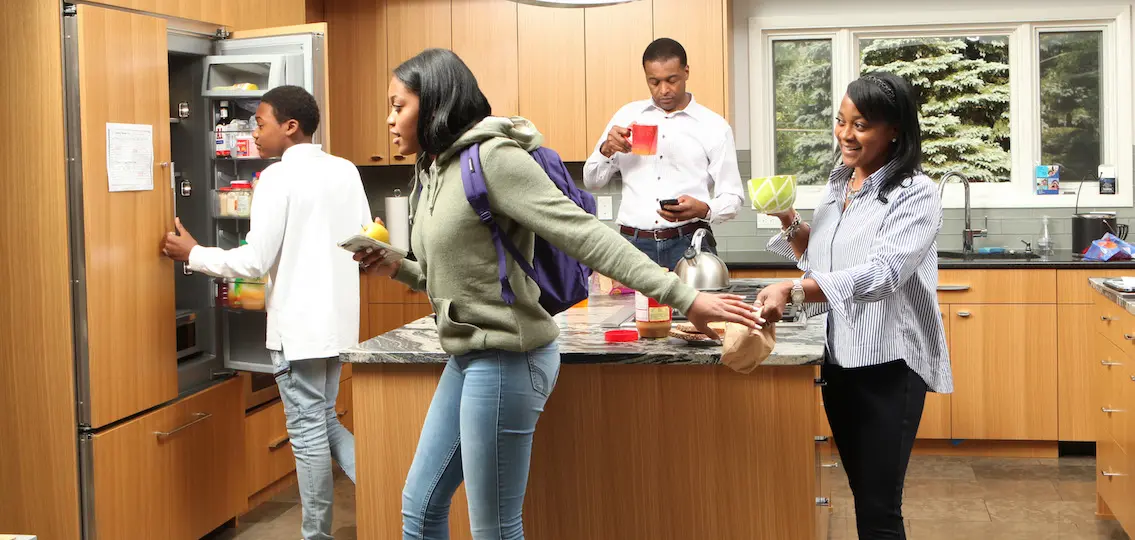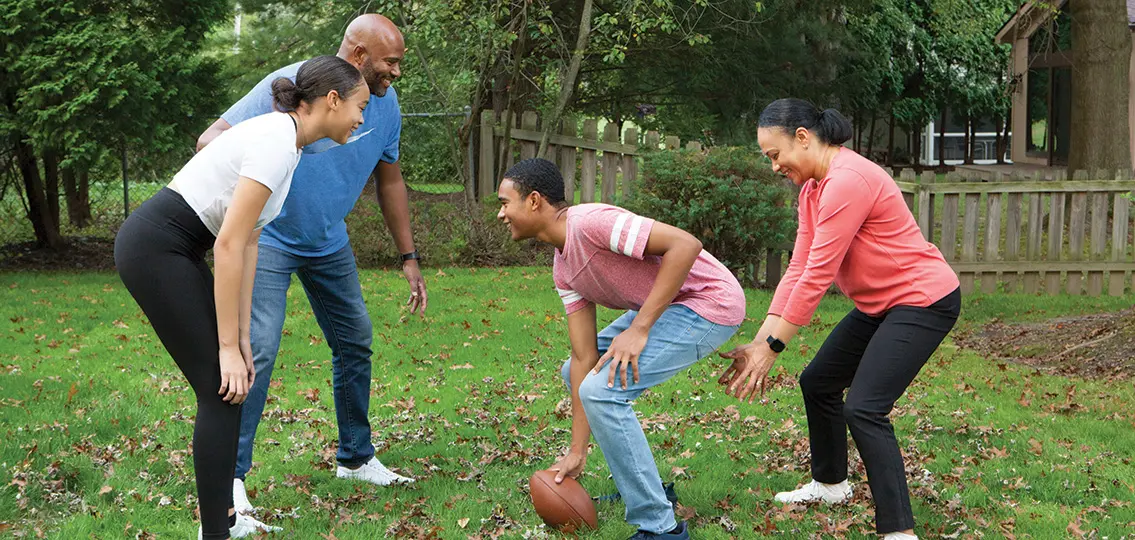A happy family doesn’t happen by accident. In The Secrets of Happy Families and Life Is In the Transitions, New York Times Bestselling Author Bruce Feiler shares his findings about happy families. Here are our top ten. How many of these can you add into your family life?

10 Tips for a Happy Families
1. Ten golden minutes per day
Many experts recommend taking back the family dinner. In reality, your family might not be able to make dinner work in your schedule. In that case, find any 10 minutes in your day (breakfast, lunch, dinner, snack-time) to engage in meaningful family conversation.
2. Share your story
When your teenager encounters a difficult time, he may feel like his situation is unique and embarrassing. You should share your story. Do you know why? Because research proves that when family members share their stories, both successes and failures, our children learn that people survive challenges.
3. Adapt all the time
Families need constant adjustments. Learn to be agile and your children will learn to be flexible as well.
4. Go out and play
Make sure that you are conscientious about playing together. Plan for it—vacations, games, family hikes. Have fun.
5. Face to face time is important
As we know, kids are spending increased time in front of screens. So in-person face time becomes even more essential. Focus on in-person time with your family, with your children and their friends, and with extended family and friends. Nothing replaces in-person experiences.
6. Create a family mission statement
Have a formal conversation with your family and define what is really important. From your list of priorities, craft a family mission statement.
7. Have a weekly family meeting
Have a family meeting once a week to discuss the family, actually discuss how the family is functioning.
8. Get involved in your kids’ disputes
The old philosophy—let them work it out—has proven not to work. Get involved, but don’t adjudicate. Have a conversation that starts to develop conflict-resolution skills.
9. Let your kids pick their punishments
Many of us grew up with our parents imposing a punishment. Try including your teen in the crafting of an appropriate punishment. They will probably have better follow-through, and they will develop skills to make good decisions.
10. Change where you sit
Where you sit will affect the conversation. Hard surfaces translates to more rigidity; cushioned surfaces create more accommodation. Therefore, you should be intentional about where you sit when you have family conversations.





